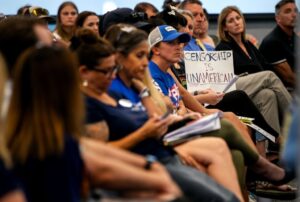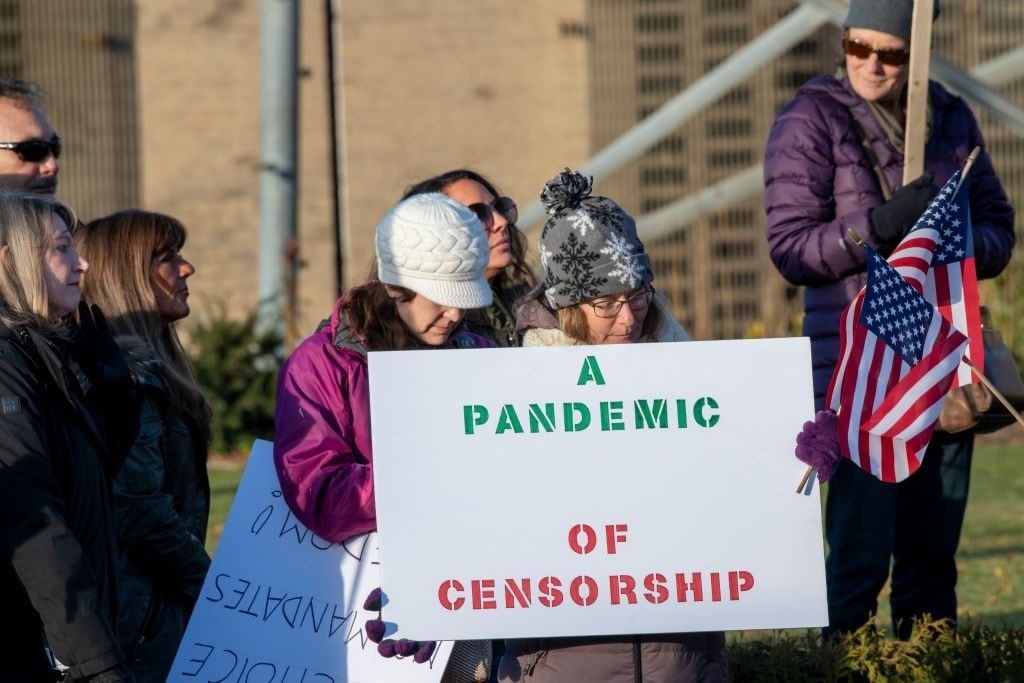A new report published by two House of Representatives committees describes in detail how US government agencies launched a coordinated attack on free speech ahead of the 2020 presidential election. The 104-page interim staff report was released on November 6 by the Judiciary Committee and the Select Subcommittee on the Weaponization of the Federal Government. It reveals a multi-agency scheme to partner with universities to pressure social media companies into suppressing information and opinion posted online by prominent Republicans and conservative commentators. That this effort was entirely motivated by political partisanship is beyond question. In some cases, the level of censorship became so petty that it even targeted jokes as well as humorous articles and memes.
It seems to have all begun with the Cybersecurity and Infrastructure Security Agency (CISA), a division of the Department of Homeland Security, and the ironically named Election Integrity Partnership (EIP), which the interim report describes as “a consortium of ‘disinformation’ academics led by Stanford University’s Stanford Internet Observatory (SIO).” The EIP itself was created “at the request” of CISA in 2020.
Censorship in the Name of Election Integrity

(Gina Ferazzi / Los Angeles Times via Getty Images)
CISA and the EIP worked with the State Department’s Global Engagement Center to put systems in place for flagging content posted to social media that it deemed to be “disinformation.” In almost all cases, the offending content was posted by “candidates and commentators with conservative viewpoints.” The interim report contains a list of 21 individuals whose social media posts were either suppressed, removed, or labeled as false by tech companies at the request of the EIP or CISA. All 21 of the people listed were elected Republicans, Republican candidates, or conservative journalists, commentators, and activists. So, even though the list also included “An untold number of everyday Americans of all political affiliations,” there can be no debating the overwhelming partisan focus of this massive censorship operation.
Among the individuals listed are then-President Donald Trump, Reps. Thomas Massie (R-KY) and Marjorie Taylor Greene (R-GA), Mollie Hemingway, Candice Owens, James O’Keefe, Tom Fitton, Michelle Malkin, and Sean Hannity. Two media companies are also listed: Newsmax and The Babylon Bee. Either no one told the EIP that the latter is an online satirical publication, or these politically motivated censors think even humorous content that does not conform to their world view is dangerous.
An October 23, 2020, tweet from former Speaker Newt Gingrich was flagged. “Pennsylvania Democrats are methodically changing the rules so they can steal the election,” Gingrich wrote. “It is amazingly open, dishonest, ruthless and will work unless the state (especially Philadelphia) is flooded with law enforcement.”
On October 27 of that year, Trump tweeted: “Strongly Trending (Google) since immediately after the second debate is CAN I CHANGE MY VOTE? This refers to changing it to me. The answer in most states is YES. Go do it. Most important Election of your life!” This was reported to a “misinformation” tip line. The federal official who reported it attached a screenshot of Trump’s tweet and wrote, “I’m reporting this disinformation about the elections. Please take steps to stop it, and correct it publicly. Thanks.” CISA reported the tweet to Twitter.
On election night, 2020 – just after midnight – Republican Sen. Thom Tillis tweeted, “Thank you for this historic victory, North Carolina! Looking forward to SIX MORE YEARS of fighting for you and your family in the U.S. Senate.” EIP flagged this tweet because they decided it was a premature celebration of victory. He was indeed re-elected to the Senate.
The list of tweets and other social media posts reported as “disinformation” is extensive. Many of these posts were opinions and, therefore, could not possibly be described as disinformation. Without question, then, this was an organized censorship effort to influence voters by restricting what they could say and what they could see online. It was also a suppression of anyone who questioned election procedures. It’s curious that an entity claiming to protect election integrity would think it proper to filter what information voters receive. It should also be particularly concerning that anyone questioning potential electoral irregularities would be silenced.
Why was this all done through a hastily put-together partnership with universities? Because the entire enterprise was in direct violation of Americans’ First Amendment rights, and the federal government could not see to be engaging in such censorship. It was, then, a work-around – and it was clearly intended to help the Democratic Party win the White House and seats in Congress, as well as elected offices at all levels. The self-styled defenders of democracy appear to have a very strange idea of what democracy is or what one should do to protect it.




